On beef, the parties say they will build upon existing beef support schemes such as BDGP and BEEP to enhance farm incomes, while contributing to climate change, biodiversity and animal welfare goals.
The parties say they will ensure greater transparency, co-operation and fairness in the beef industry throughout the supply chain – from farm to fork.
They also say they will ensure the challenges beef farmers have been dealing with are recognised and supported under the next CAP.
The document also acknowledges “the important and unique role that the suckler sector plays in the beef industry and commit to developing supports that recognise this critical role”.
It will encourage more producer organisations in the beef sector, work at EU level for the development of a Protected Geographical Indicator (PGI) for Irish beef and ensure the Beef Market Taskforce implements the stakeholder agreement.

\ Donal O'Leary
Farmers will be relieved to see that live exports have been protected in the programme for government document, with outgoing Minister for Agriculture Michael Creed making it a priority during the negotiations.
If anything, the role of live exports has been enhanced in the agreed document.
We will vigorously pursue value-enhancing alternative market avenues
“We acknowledge the income pressure that beef farmers are under, and the role live exports play in price competition. Recognising the importance of animal welfare, the new government will provide additional resources to monitor welfare standards by increasing the veterinary presence available on all live export consignments to third countries. We will vigorously pursue value-enhancing alternative market avenues,” the document states.
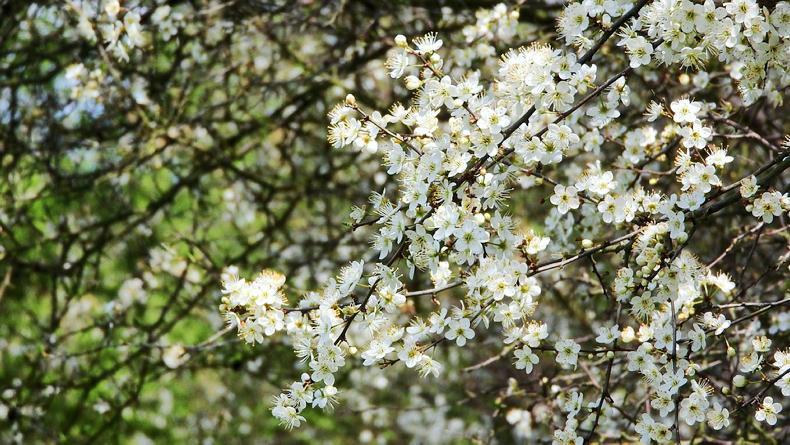
Environment and
biodiversity
The parties propose to carry out a baseline biodiversity survey on every farm in Ireland, as well as complete a national survey of the country’s 630,000km of hedgerows.
They plan to develop climate action ‘signpost farms’ to provide on-farm experience of the benefits of farming sustainably.
They commit to publish a new national pollinator plan, encourage public bodies to promote biodiversity and incentivise the re-wetting of carbon-rich soils.
Pesticides, soil and lime
Pesticide use will be reviewed and the document says the government will provide supports to farmers who are able to reduce their dependence on agri-chemicals.
There is also a commitment to publish a National Soils Strategy that will assess current soil health and inform future policies on good soil management.
Linked to this, there are also plans to introduce a national liming programme to improve nitrogen use efficiency in soils.
Fianna Fáil, Fine Gael and the Greens have agreed to carry out a review of the effects of the nitrates derogation on water quality in conjunction with the EPA, which will inform future policy in this area.
The use of protected urea on grassland and greater take-up of low emissions slurry spreading will also be encouraged
The document says the next government would work with nitrates derogation farmers to improve environmental outcomes on their farms, ensuring the sustainable use of the derogation in line with environmental objectives.
There is a commitment to expand programmes such as the Agricultural Sustainability Support and Advisory Programme (ASSAP) to deliver real improvements in water quality. The use of protected urea on grassland and greater take-up of low emissions slurry spreading will also be encouraged.
A new flagship environmental scheme is planned that is being referred to as “REPS mark II”.
“We will design a flagship environmental scheme under the new CAP which is user friendly for farmers, delivering broader environmental and biodiversity benefits and aligning financial support with climate, forestry and land use objectives.
“This will be complemented by an ambitious ECO-scheme under Pillar I of the CAP, rewarding farmers who deliver enhanced environmental performance,” the document states.
We will pilot this agri-environment scheme during the transition period, supported by additional Exchequer funding
“The conclusion of the current CAP programme period at the end of 2020 provides a significant opportunity to reorient agri-environment and land use policy to deliver more in the short term on the key priorities of climate, biodiversity, designated land, water quality and carbon reduction and removal.
“We will pilot this agri-environment scheme during the transition period, supported by additional Exchequer funding. The scheme will seek to include farmers not currently in GLAS who previously participated in AEOS, and those exiting GLAS. This pilot will inform the shape of the flagship agri-environment scheme for the next CAP,” it adds.
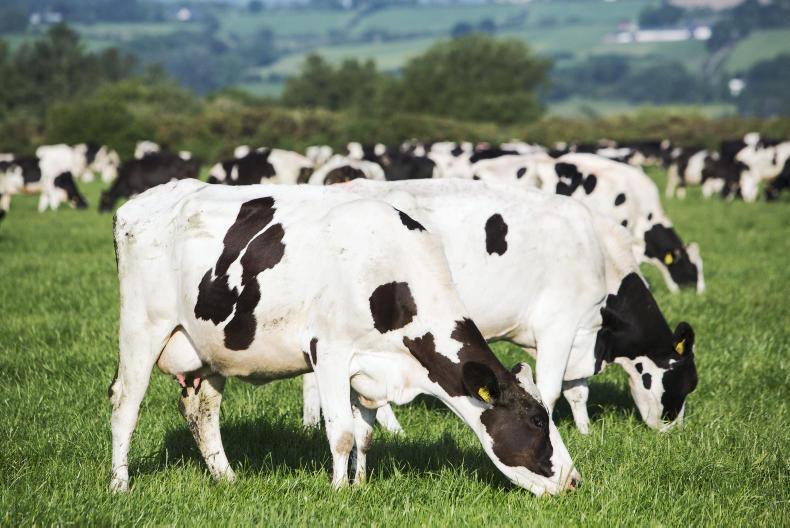
Taxation changes are mooted for dairy farmers that would allow them reduce their tax bill in a year of high profits to be used again during periods of weak dairy markets.
The parties say they would work with farmers to improve the viability of dairy calf-to-beef systems, as well as support dairy farmers that wish to add value to their own milk by on-farm processing.
Interestingly, the parties want to research the potential of dual-purpose breeds in the dairy herd, as well as the viability of ‘calf-at-foot’ dairy models.
The programme for government document states that the next Government will work with tillage farmers in the context of CAP and the successor strategy to Foodwise 2025 to build growth in the sector.
There is a pledge to increase the adoption of Teagasc recommendations for climate-smart cultivation methods
It aims to maximise potential opportunities in the organic tillage sector, as well as opportunities for homegrown proteins in animal feeds and supply of Irish grains to the expanding food and drinks industry.
It will investigate that potential for growing fibre crops such as hemp to see whether these crops have a viable market.
There is a pledge to increase the adoption of Teagasc recommendations for climate-smart cultivation methods.
It wants to review the supports available to the horticulture sector and encourage greater expansion and growth in this sector, as well as promote Irish horticultural products and enhance capital investment available to horticulture producers.
For sheep farmers, the programme for government commits to support build on schemes such as the Sheep Welfare Scheme and ANC scheme to enhance farm income while contributing to climate change, biodiversity and animal welfare objectives.
It pledges to support the sheep sector under the next CAP, deliver further export opportunities for the Irish sheep sector and defend the interests of the sector in trade negotiations.
It also plans to review potential demand at home and abroad for wool-based products such as insulation and fertilisers.
Land use, forestry
and rewilding
The programme for government promises to incentivise the rewetting of carbon-rich soils, which could see farmers with peat soils paid to rewet some of their land in order to store carbon.
An ambitious forestry section outlines increased support for agroforestry (combining forestry and agriculture) or silvopasture (grazing animals among trees) on Irish farms.
Afforestation would be incorporated into the next CAP, incentivising farmers to plant woodland to act as a carbon store, promote wildlife corridors and provide fuel for their households.
There is a commitment to support farm forestry/rewilding options that do not impact on agricultural production and support biodiversity and habitat creation, on areas up to 1ha.
Farm Assist and
forgotten farmers
There is a pledge to resolve the issue of support for the category of farmers known as “forgotten farmers” under the next CAP. There are more than 2,000 young farmers in Ireland who are under the age of 40 but do not qualify for CAP funding.
There will also be a review of the means test disregards for Farm Assist supports.
Food ombudsman and farmer appeals
Fianna Fáil, Fine Gael and the Greens have agreed to establish a food ombudsman, something that was on Fianna Fáil’s wish list at the start of the talks. The new food ombudsman will be tasked with implementing the unfair trading practices directive developed by the European Commission last year and will also deliver increased price reporting and market transparency for farmers. Alongside this, the three parties have also agreed to introduce a new agricultural appeals review panel. This new body will allow farmers who are unhappy with the result of an appeal made to the agricultural appeals office to have a second hearing. Importantly, this new appeals panel will include farmer representatives.
The parties have committed to ending badger culling “as soon as possible”.
Among the promises in the animal welfare section of the programme for government is a pledge to expand the badger vaccination programme nationwide as an alternative to culling.
This, it says, will be done “consistent with the best scientific and veterinary advice”.
Vaccination of badgers against TB as part of Ireland’s TB programme began in February 2018. By late 2019, the area subject to vaccination had increased from 8,000km2 to almost 18,000km2, with plans for further increases.
The move will form part of the wider commitment to introduce a TB 2030 eradication strategy.
On beef, the parties say they will build upon existing beef support schemes such as BDGP and BEEP to enhance farm incomes, while contributing to climate change, biodiversity and animal welfare goals.
The parties say they will ensure greater transparency, co-operation and fairness in the beef industry throughout the supply chain – from farm to fork.
They also say they will ensure the challenges beef farmers have been dealing with are recognised and supported under the next CAP.
The document also acknowledges “the important and unique role that the suckler sector plays in the beef industry and commit to developing supports that recognise this critical role”.
It will encourage more producer organisations in the beef sector, work at EU level for the development of a Protected Geographical Indicator (PGI) for Irish beef and ensure the Beef Market Taskforce implements the stakeholder agreement.

\ Donal O'Leary
Farmers will be relieved to see that live exports have been protected in the programme for government document, with outgoing Minister for Agriculture Michael Creed making it a priority during the negotiations.
If anything, the role of live exports has been enhanced in the agreed document.
We will vigorously pursue value-enhancing alternative market avenues
“We acknowledge the income pressure that beef farmers are under, and the role live exports play in price competition. Recognising the importance of animal welfare, the new government will provide additional resources to monitor welfare standards by increasing the veterinary presence available on all live export consignments to third countries. We will vigorously pursue value-enhancing alternative market avenues,” the document states.

Environment and
biodiversity
The parties propose to carry out a baseline biodiversity survey on every farm in Ireland, as well as complete a national survey of the country’s 630,000km of hedgerows.
They plan to develop climate action ‘signpost farms’ to provide on-farm experience of the benefits of farming sustainably.
They commit to publish a new national pollinator plan, encourage public bodies to promote biodiversity and incentivise the re-wetting of carbon-rich soils.
Pesticides, soil and lime
Pesticide use will be reviewed and the document says the government will provide supports to farmers who are able to reduce their dependence on agri-chemicals.
There is also a commitment to publish a National Soils Strategy that will assess current soil health and inform future policies on good soil management.
Linked to this, there are also plans to introduce a national liming programme to improve nitrogen use efficiency in soils.
Fianna Fáil, Fine Gael and the Greens have agreed to carry out a review of the effects of the nitrates derogation on water quality in conjunction with the EPA, which will inform future policy in this area.
The use of protected urea on grassland and greater take-up of low emissions slurry spreading will also be encouraged
The document says the next government would work with nitrates derogation farmers to improve environmental outcomes on their farms, ensuring the sustainable use of the derogation in line with environmental objectives.
There is a commitment to expand programmes such as the Agricultural Sustainability Support and Advisory Programme (ASSAP) to deliver real improvements in water quality. The use of protected urea on grassland and greater take-up of low emissions slurry spreading will also be encouraged.
A new flagship environmental scheme is planned that is being referred to as “REPS mark II”.
“We will design a flagship environmental scheme under the new CAP which is user friendly for farmers, delivering broader environmental and biodiversity benefits and aligning financial support with climate, forestry and land use objectives.
“This will be complemented by an ambitious ECO-scheme under Pillar I of the CAP, rewarding farmers who deliver enhanced environmental performance,” the document states.
We will pilot this agri-environment scheme during the transition period, supported by additional Exchequer funding
“The conclusion of the current CAP programme period at the end of 2020 provides a significant opportunity to reorient agri-environment and land use policy to deliver more in the short term on the key priorities of climate, biodiversity, designated land, water quality and carbon reduction and removal.
“We will pilot this agri-environment scheme during the transition period, supported by additional Exchequer funding. The scheme will seek to include farmers not currently in GLAS who previously participated in AEOS, and those exiting GLAS. This pilot will inform the shape of the flagship agri-environment scheme for the next CAP,” it adds.

Taxation changes are mooted for dairy farmers that would allow them reduce their tax bill in a year of high profits to be used again during periods of weak dairy markets.
The parties say they would work with farmers to improve the viability of dairy calf-to-beef systems, as well as support dairy farmers that wish to add value to their own milk by on-farm processing.
Interestingly, the parties want to research the potential of dual-purpose breeds in the dairy herd, as well as the viability of ‘calf-at-foot’ dairy models.
The programme for government document states that the next Government will work with tillage farmers in the context of CAP and the successor strategy to Foodwise 2025 to build growth in the sector.
There is a pledge to increase the adoption of Teagasc recommendations for climate-smart cultivation methods
It aims to maximise potential opportunities in the organic tillage sector, as well as opportunities for homegrown proteins in animal feeds and supply of Irish grains to the expanding food and drinks industry.
It will investigate that potential for growing fibre crops such as hemp to see whether these crops have a viable market.
There is a pledge to increase the adoption of Teagasc recommendations for climate-smart cultivation methods.
It wants to review the supports available to the horticulture sector and encourage greater expansion and growth in this sector, as well as promote Irish horticultural products and enhance capital investment available to horticulture producers.
For sheep farmers, the programme for government commits to support build on schemes such as the Sheep Welfare Scheme and ANC scheme to enhance farm income while contributing to climate change, biodiversity and animal welfare objectives.
It pledges to support the sheep sector under the next CAP, deliver further export opportunities for the Irish sheep sector and defend the interests of the sector in trade negotiations.
It also plans to review potential demand at home and abroad for wool-based products such as insulation and fertilisers.
Land use, forestry
and rewilding
The programme for government promises to incentivise the rewetting of carbon-rich soils, which could see farmers with peat soils paid to rewet some of their land in order to store carbon.
An ambitious forestry section outlines increased support for agroforestry (combining forestry and agriculture) or silvopasture (grazing animals among trees) on Irish farms.
Afforestation would be incorporated into the next CAP, incentivising farmers to plant woodland to act as a carbon store, promote wildlife corridors and provide fuel for their households.
There is a commitment to support farm forestry/rewilding options that do not impact on agricultural production and support biodiversity and habitat creation, on areas up to 1ha.
Farm Assist and
forgotten farmers
There is a pledge to resolve the issue of support for the category of farmers known as “forgotten farmers” under the next CAP. There are more than 2,000 young farmers in Ireland who are under the age of 40 but do not qualify for CAP funding.
There will also be a review of the means test disregards for Farm Assist supports.
Food ombudsman and farmer appeals
Fianna Fáil, Fine Gael and the Greens have agreed to establish a food ombudsman, something that was on Fianna Fáil’s wish list at the start of the talks. The new food ombudsman will be tasked with implementing the unfair trading practices directive developed by the European Commission last year and will also deliver increased price reporting and market transparency for farmers. Alongside this, the three parties have also agreed to introduce a new agricultural appeals review panel. This new body will allow farmers who are unhappy with the result of an appeal made to the agricultural appeals office to have a second hearing. Importantly, this new appeals panel will include farmer representatives.
The parties have committed to ending badger culling “as soon as possible”.
Among the promises in the animal welfare section of the programme for government is a pledge to expand the badger vaccination programme nationwide as an alternative to culling.
This, it says, will be done “consistent with the best scientific and veterinary advice”.
Vaccination of badgers against TB as part of Ireland’s TB programme began in February 2018. By late 2019, the area subject to vaccination had increased from 8,000km2 to almost 18,000km2, with plans for further increases.
The move will form part of the wider commitment to introduce a TB 2030 eradication strategy.







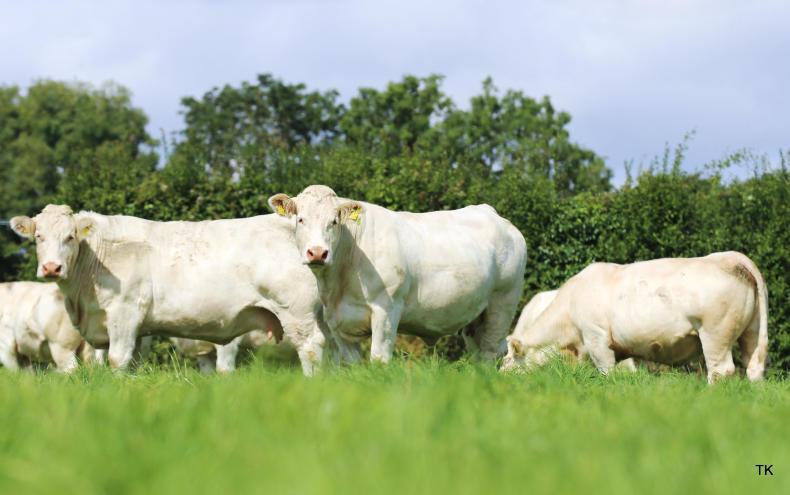
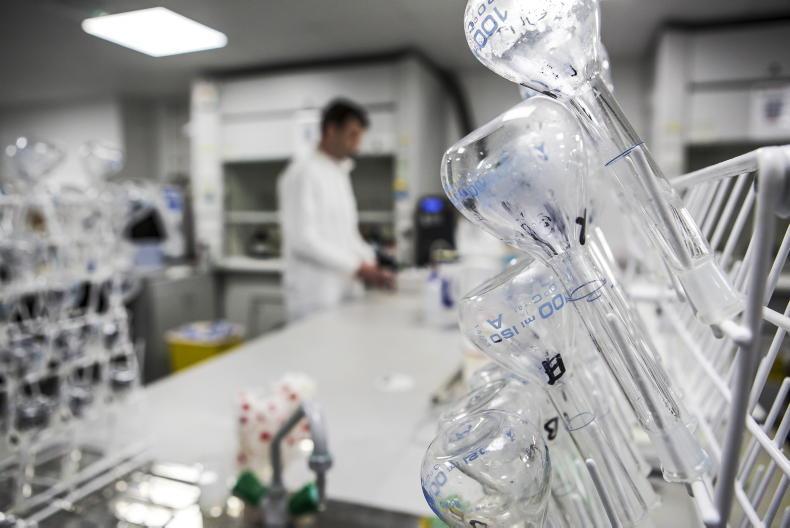
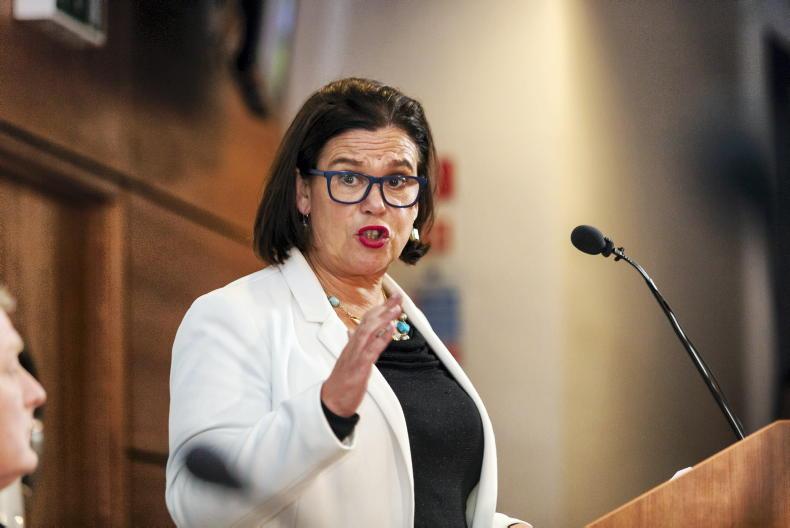
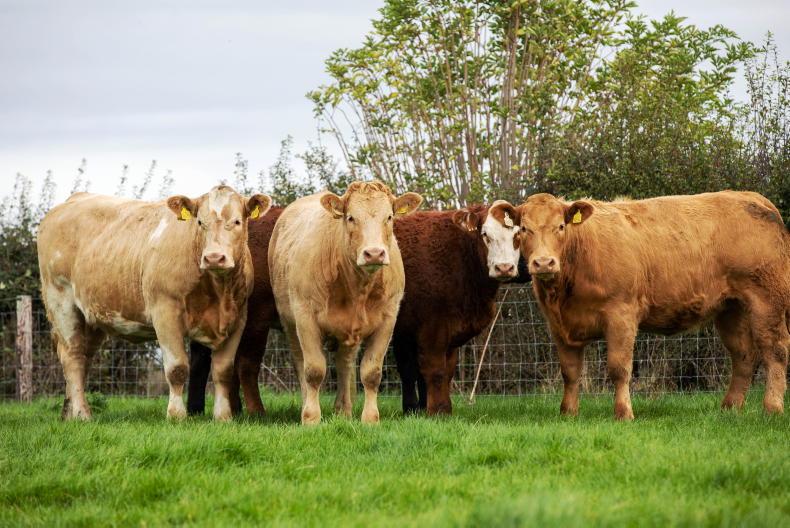

SHARING OPTIONS